Best 400 lb Capacity Kayaks
Kayaks with a 400-pound weight capacity offer a great balance of comfort, versatility, and performance for many paddlers. They provide more room to move than smaller recreational kayaks without being overly long or difficult to maneuver.

In this article, we will review the top-rated sit-inside, sit-on-top, pedal-powered, touring, tandem, and specialty 400-pound capacity kayaks on the market. We’ll cover their standout features, the types of paddling at which they excel, and how they compare to competitors.
Whether you enjoy lakes, rivers, oceans, or a mix, there is likely a perfect 400-pound kayak here for you. We’ll make recommendations based on popular paddling activities and needs. My goal is to share insights from first-hand experience to help you discover the ideal kayak for your adventures.
If you’re interested in other weight ranges, please see our guides to the Best 300lb Capacity Kayaks.
14 Top Best 400 lb Capacity Kayaks
I’ve compiled a list of the top 400 lb capacity kayaks, and I’ll be reviewing them in detail below.
Old Town Loon 126

SPECIFICATIONS
| Length | Width | Weight | Capacity |
| 12’6″ | 31″ | 59 lbs | 450 lbs |
Pros
Cons
The latest Old Town Loon 126 kayak of Best 400 lb Capacity Kayaks offers excellent comfort and versatility for recreational paddling. After testing it myself, the removable work deck is a real game-changer. I could customize the setup with cameras, and extra fishing rods, and use the built-in USB charging port for my devices.
The spacious cockpit and comfortable seat made for a very enjoyable ride. The supportive thigh pads kept me stable for hours on the water. One downside is the lack of front storage, but I managed by packing items in the bow area around my legs. The watertight rear hatch carries a lot of gear with a 450-pound weight limit. More bungee tie-downs in the front would be useful for added cargo capacity.
With its wide hull, the Loon 126 offers outstanding stability for casual paddling. At twelve feet six inches long, it’s a good size for short trips but not ideal for covering long distances.
For anglers, Old Town makes a Loon 126 Angler model tailored for fishing. It adds more storage for tackle, poles, and accessories.
If you want to know about Best kayaks for big guys picks for tall and big guys then click here.
Wilderness Systems Aspire 105

SPECIFICATIONS
| Kayak Model | Length | Width | Weight | Capacity |
| Wilderness Systems Aspire 105 | 10’6″ | 29″ | 48 lbs | 400 lbs |
Pros
Cons
The Wilderness Systems Aspire 105 of Best 400 lb Capacity Kayaks is a shorter, narrower, and lighter alternative to the Loon 126, perfect for casual and intermediate kayakers with its 10’6″ length. While it’s not recommended for big waves, it handles moderate waves and tidal conditions, allowing you to test your skills.
A standout feature of 400 lb Capacity Kayaks is the adjustable skeg, greatly improving tracking, making it easier to stay on course even in windy conditions, despite the shorter keel. It’s surprisingly stable, being two inches narrower than the Loon 126, suitable for paddlers of all experience levels.
However, the narrower hull results in a somewhat snug cockpit, which might be concern for larger paddlers. It’s best to try it out before committing. The seat offers various adjustments, cushioning, and breathable material for temperature control.
Wilderness Systems A.T.A.K. 120

SPECIFICATIONS
| Kayak Model | Length | Width | Weight | Capacity |
| Wilderness Systems A.T.A.K. 120 | 12’3″ | 35″ | 86 lbs | 400 lbs |
Pros
Cons
The Wilderness Systems A.T.A.K. 120 sit-on-top Best 400 lb Capacity Kayaks is one of my favorites for its versatility beyond fishing. I really like the custom add-ons available, including fish finder compatibility and multiple accessory mounts to rig it up exactly how I want.
400 lb Capacity Kayaks Stability is key for fishing, and the A.T.A.K. 120 delivers with its 35-inch width. I felt very secure paddling in both calm and choppy waters. The stand assist strap even lets me confidently stand up to fish or stretch my legs. The supportive external frame seat accommodates paddlers of all sizes as well.
Best 400 lb Capacity Kayaks of Storage is excellent a large front hatch for keeping gear dry and a spacious rear area for hauling more equipment in dry bags. The open cockpit also makes bringing along a four-legged friend possible!
One negative is the kayak’s heavyweight at 86 pounds. Carrying it longer distances can be difficult, even with the built-in handles. You may need an extra set of hands for long portages.
In summary, the feature-packed Wilderness Systems A.T.A.K. 120 offers outstanding stability and a customizable setup for a versatile sit-on-top kayaking experience beyond just fishing use. Let me know if any part of the review needs more clarification!
Jackson Kayak Bite Rec

SPECIFICATIONS
| Kayak Model | Length | Width | Weight | Capacity |
| Jackson Kayak Bite Rec | 11’6″ | 35″ | 74 lbs | 400 lbs |
Pros
Cons
The Jackson Bite Rec is my top budget-friendly pick for a stable sit-on-top 400 lb Capacity Kayaks suitable for all skill levels. At just nine inches shorter but equally as wide as the Wilderness A.T.A.K., it offers great standing stability with the help of an assist strap. The accessory tracks also allow some customizations, although the A.T.A.K. offers more versatility.
A downside is the lack of dry storage. The Bite Rec only has open compartments at the front and back for hauling gear bags. So quality dry bags are a must in wet conditions.
In terms of performance, the wide hull provides decent tracking and turning but not blazing-fast speeds. I’d recommend the Bite Rec for calmer waters like lakes, rivers, and protected ocean areas rather than rougher seas or rapids.
At 74 pounds, the kayak is fairly lightweight but still challenging for long solo carries. The built-in paddle holder is very convenient though.
Overall, if looking for stability with some accessory options at a budget-friendly price point, the Jackson Bite Rec is an excellent choice. Just be mindful of its lack of dry storage and speed limitations in rougher water environments. Let me know if any part needs clarification!
Jackson Kayak Knarr FD

SPECIFICATIONS
| Kayak Model | Length | Width | Weight | Capacity |
| Jackson Kayak Knarr FD | 13’9″ | 37″ | 140 lbs | 425 lbs |
Pros
Cons
The Jackson Knarr FD is my top pedal kayak pick. Pedal drives let you power the kayak with your legs rather than a paddle. This allows for efficient cruising speeds, especially in calm water. Though pedal kayaks are often heavier, the smooth propulsion makes up for the extra weight.
I found the Knarr FD’s pedal system provides excellent forward momentum, even against winds and waves. The spacious cockpit features a comfy seat and accessory tracks for customization. The seat-back toolbox is perfect for storing small items within easy reach.
Storage space is generous with two dry hatches and a 425-pound capacity. Flush rod holders also allow for fishing. However, at 140 pounds, the Knarr FD is very heavy. You’ll likely need help transporting it or invest in a wheeled kayak cart.
In summary, the Jackson Knarr FD excels at efficient pedaling with plenty of customization for an all-around versatile ride. Just be prepared to handle the extra weight during transportation. Let me know if any part needs clarification!
Hobie Mirage Passport 12

SPECIFICATIONS
| Kayak Model | Length | Width | Weight | Capacity |
| Hobie Mirage Passport 12 | 12′ | 34″ | 83 lbs | 400 lbs |
Pros
Cons
The Hobie Mirage Passport 12 is my top budget-friendly pedal kayak pick. Like the Jackson Knarr FD, it uses leg power instead of a paddle to cruise efficiently. Hobie’s kick-up fin design also prevents damage when hitting underwater objects.
At 12 feet, the Passport trades some speed for a more compact size compared to the Knarr. But the pedal system still outpaces paddle kayaking. I love Hobie’s comfy mesh seats, and the passports provide excellent back support for all-day pedaling.
For storage, there’s a small front hatch and open bow/stern areas to lash down gear bags. Custom mounts allow rod holder and accessory additions. While capable of ocean swells, I’d use caution in extremely rough water.
A major advantage of 400 lb Capacity Kayaks over the heavier Knarr is portability, with the Passport weighing nearly 50 pounds less. This makes solo launching much more manageable, especially in remote locations.
Overall, the Hobie Mirage Passport 12 offers versatile customization in a transportable package at a lower price point than many pedal kayaks
Best fishing kayaks for 2024
Eddyline Sitka XT
SPECIFICATIONS
| Kayak Model | Length | Width | Weight | Capacity |
| Eddyline Sitka XT | 15’3″ | 24.5″ | 49 lbs | 400 lbs |
Pros
Cons
The Eddyline Sitka XT is my top pick for a touring kayak thanks to its swift hull design that covers miles quickly. The long, narrow shape combined with a V-shaped bottom and angled edges provides both speed and maneuverability.
Since a rudder isn’t included, practicing basic turning strokes is important before tackling advanced waters. But the retractable skeg helps track straight in windy conditions.
Storage is generous with two large hatches and a front day hatch, plus the usual bungees. The cockpit offers thigh braces and foot pegs but may feel confined for taller paddlers.
In summary, the Eddyline Sitka XT 400 lb Capacity Kayaks offers efficient cruising for long distances courtesy of its streamlined design. The hatches provide substantial dry storage space as well. Just be aware the cockpit runs narrow for those over 6 feet tall.
Old Town Castine 145

SPECIFICATIONS
| Kayak Model | Length | Width | Weight | Capacity |
| Old Town Castine 145 | 14’6″ | 26.5″ | 62 lbs | 450 lbs |
Pros
Cons
The Old Town Castine 145 of 400 lb Capacity Kayaks is a great entry-level touring option with enhanced stability versus narrower models like the Eddyline Sitka. Trading some speed for maneuverability, allows beginners to gain skills with less frustration.
A handy addition is the removable slide track for accessing gear without digging through hatches. Storage space itself is plentiful, with the usual front and rear dry compartments suitable for multi-day trips with wise packing.
The wider hull offers a roomy cockpit, although I still prefer Eddyline’s seats. A phone holder cradle keeps your device handy for snapping photos mid-paddle too. As a stability-focused kayak, the Castine lacks a skeg but can be outfitted with an optional rudder. This helps offset the shorter length when paddling long distances or against strong winds.
In the end, the user-friendly Old Town Castine 145 trades elite touring performance for stability, making it the perfect step up for budding adventurers before investing in a faster kayak
old town tandem kayak

SPECIFICATIONS
| Kayak Model | Length | Width | Weight | Capacity |
| Old Town Dirigo Tandem Plus | 15’3″ | 29.5″ | 75 lbs | 475 lbs |
Pros
Cons
Being a fan of kayaking with friends and family, I was excited to test the Old Town Dirigo Tandem Plus. This sit-inside tandem kayak offers two spacious cockpits and glides smoothly on the water. Despite having dimensions similar to solo touring kayaks, the Dirigo picks up speed quickly when two paddlers work together. Surprisingly, its narrow width provides better stability than it may appear at first glance.
The open cockpits offer plenty of legroom, but their width can make it tricky to find spray skirts that fit just right. If you’re thinking of embarking on an overnight trip with the Dirigo Tandem, you might want to reconsider. The storage space is quite limited, and it won’t comfortably accommodate gear for two people.
While there’s a watertight hatch in the back, the bow storage is restricted due to the extra cockpit. Shorter paddlers may manage to fit smaller items in front of their feet, but it’s not enough for weekend getaways. On a positive note, there’s a small jumpseat between the two cockpits, perfect for a small child or a furry friend, ensuring no one gets left behind.
The perimeter lines add an extra layer of safety in case of capsizing, and Old Town has included some clever features like retractable carry handles, thigh pads, a glove box for keys and phones, and even cup holders.
In summary, the Old Town Dirigo Tandem Plus of 400 lb Capacity Kayaks is a great choice for those seeking a speedy and stable tandem kayak. Just remember, it comes with limited storage space.
Ocean Kayak Malibu Two

SPECIFICATIONS
| Kayak Model | Length | Width | Weight | Capacity |
| Ocean Kayak Malibu Two | 12′ | 34″ | 63 lbs | 425 lbs |
Pros
Cons
The Ocean Kayak Malibu Two is a great tandem Best 400 lb Capacity Kayaks for beginners and casual paddlers. It is very stable and easy to maneuver, making it perfect for exploring calm waters. The removable seats allow it to be converted into a solo kayak as well, making it a versatile option for all types of paddling.
However, the Malibu Two does have some limitations. The footwell system is not as effective as footpegs for bracing and getting a good fit. Additionally, storage space is limited, especially when paddling with a partner. This makes it more suitable for day trips rather than extended adventures.
Overall, the Ocean 400 lb Capacity Kayaks Malibu Two is a great choice for beginner and casual paddlers looking for a stable and easy-to-paddle kayak.
Advanced Elements AdvancedFrame Expedition Elite

SPECIFICATIONS
| Kayak Model | Length | Width | Weight | Capacity |
| Advanced Elements AdvancedFrame Expedition Elite | 13′ | 32″ | 42 lbs | 450 lbs |
Pros
Cons
Stretching over 17 feet with a narrowed bow and stern, Eddyline’s Baffin P3 glide kayak provides an athletic tourer for traversing distance. The generous length and moderate width gift this rigid craft with speed, tracking confidence, and ample on-deck cargo space.
Tall riders welcome the Baffin’s consideration of bigger feet and longer limbs thanks to foot wells with granular adjustability. Storage access remains average for the cockpit’s circumference, though consciously located hatches help keep essentials specifically dry.
A supplemental removable fin further prevents detouring off course in gusty scenarios. However, expect challenged maneuverability requiring proficient paddle corrections at pace. This thoroughbred vessel best suits intermediate and advanced enthusiasts leaning into the Baffin’s high-performance capabilities.
Aquaglide Chelan 140

SPECIFICATIONS
| Kayak Model | Length | Width | Weight | Capacity |
| Aquaglide Chelan 140 | 13’6″ | 35″ | 35 lbs | 400 lbs |
The Chelan 140 of 400 lb Capacity Kayaks is a great choice for folks with limited storage space who want a smooth and stable ride. I was pleasantly surprised by how hard it was to tip over, thanks to its design that keeps you close to the water, making it a fantastic platform for paddling.
When I compared it to other tandem sit-on-top kayaks like the Malibu Two, I noticed the seats were more cushioned and comfortable, especially for taller paddlers like me. It’s a relief not to fidget for a comfy spot. Plus, the splash guard on the front helps keep the front paddler dry.
Like the Advanced Elements kayaks, the Chelan 140 Best 400 lb Capacity Kayaks has a drop-stitch floor, making it sturdier and better at handling wind and waves. While it’s not as high-performance as the Expedition Elite, it’s still a good choice for staying near the shore and avoiding rough weather.
Pros
Cons
Aire Outfitter I

SPECIFICATIONS
| Kayak Model | Length | Width | Weight | Capacity |
| Aire Outfitter I | 9’8″ | 40″ | 36 lbs | 400 lbs |
The Aire Outfitter I is a top-notch inflatable whitewater kayak. Its large side air tubes give it a robust 400-pound capacity, offering fantastic stability on challenging whitewater trips. The low-seated design is great for beginners, adding even more stability.
I liked Aire’s comfy cheetah chair, complete with a handy side pocket for snacks, water, and spare clothes. With 12 cargo loops, you can load up for overnight river adventures.
However, in calmer waters, the wider hull and shorter keel can make it a bit less agile.
It’s okay for quick paddles, but maintaining a straight course on calm water might be a bit challenging.
For advanced whitewater paddlers, there are more high-performance and narrower options, but the Outfitter I should suit most people. Just keep in mind that it’s on the pricier side, so be prepared for the cost.
Pros
Cons
Oru Kayak Coast XT

SPECIFICATIONS
| Kayak Model | Length | Width | Weight | Capacity |
| Oru Kayak Coast XT | 16’2″ | 25″ | 32 lbs | 400 lbs |
The Oru Kayak Coast XT is a unique folding kayak that combines the best of hard-sided and inflatable kayaks. It uses a clever origami-style folding technique, giving it more rigidity than inflatables and greater portability than traditional plastic kayaks.
This 400 lb Capacity Kayaks size is similar to touring kayaks, and its lightweight structure makes it perfect for reaching remote places. What’s even better is that it comes with a travel case, so you can pack it down to the size of a suitcase, making it easy to transport, even on long-distance flights.
The Coast XT offers high performance, thanks to its steep, V-shaped hull that gives it excellent secondary stability. However, it may feel a bit wobbly for beginners, so I recommend trying it in calm waters near the shore until you get the hang of it.
On the downside, it comes with a higher price tag, and packing it for longer trips can be a bit of a puzzle. Its narrow design means it’s best suited for paddlers up to 6’3″ in height.
Pros
Cons
400 lb Capacity Kayak Comparison Table
| Kayak Model | Type | Length | Width | Weight | Capacity | Seating | Cockpit Type | Structure |
| Old Town Loon 126 | Recreational | 12’6″ | 31″ | 59 lbs | 450 lbs | 1 | Sit-in | Hard-shell |
| Wilderness Systems Aspire 105 | Recreational | 10’6″ | 29″ | 48 lbs | 400 lbs | 1 | Sit-in | Hard-shell |
| Wilderness Systems A.T.A.K. 120 | Rec/Fishing | 12’3″ | 35″ | 86 lbs | 400 lbs | 1 | Sit-on-top | Hard-shell |
| Jackson Kayak Bite Rec | Rec/Fishing | 11’6″ | 35″ | 74 lbs | 400 lbs | 1 | Sit-on-top | Hard-shell |
| Jackson Kayak Knarr FD | Fishing | 13’9″ | 37″ | 140 lbs | 425 lbs | 1 | Sit-on-top | Hard-shell |
| Hobie Mirage Passport 12 | Rec/Fishing | 12′ | 34″ | 83 lbs | 400 lbs | 1 | Sit-on-top | Hard-shell |
| Eddyline Sitka XT | Touring | 15’3″ | 24.5″ | 49 lbs | 400 lbs | 1 | Sit-in | Hard-shell |
| Old Town Castine 145 | Touring | 14’6″ | 26.5″ | 62 lbs | 450 lbs | 1 | Sit-in | Hard-shell |
| Old Town Dirigo Tandem Plus | Recreational | 15’3″ | 29.5″ | 75 lbs | 475 lbs | 2 or 3 | Sit-in | Hard-shell |
| Ocean Kayak Malibu Two | Recreational | 12′ | 34″ | 63 lbs | 425 lbs | 1 or 2 | Sit-on-top | Hard-shell |
| Advanced Elements AdvancedFrame Exp. | Rec/Touring | 13′ | 32″ | 42 lbs | 450 lbs | 1 | Sit-in | Inflatable |
| Aquaglide Chelan 140 | Recreational | 13’6″ | 35″ | 35 lbs | 400 lbs | 1 or 2 | Sit-on-top | Inflatable |
| Aire Outfitter I | Whitewater | 9’8″ | 40″ | 36 lbs | 400 lbs | 1 | Sit-on-top | Inflatable |
| Oru Kayak Coast XT | Touring | 16’2″ | 25″ | 32 lbs | 400 lbs | 1 | Sit-in | Folding |
kayaks 400 lb capacity Buying Advice

Choosing the kayak’s 400 lb capacity can be tough, but it doesn’t have to be. Here are a few key things to consider:
Kayak Type
When picking a kayak, knowing the difference between sit-in and sit-on-top models is key to having a great time on the water.
Sit-in kayaks, the classics that have been around for ages, are sleek and built for top-notch performance. They keep you snug inside with your legs and torso protected from splashes and the weather. They’re your go-to for challenging waters and wet conditions. Check out the Eddyline Sitka XT for a prime example of this.
On the flip side, sit-on-top kayaks are super user-friendly. They have a broader hull that feels rock-solid in calm waters. They get that stability from the seat being up higher, which also gives you a better view. These kayaks are perfect for easy-breezy days on the lake or mellow ocean spots. They’re big hits for recreational fun and fishing trips.
The choice comes down to what you want to do, how experienced you are, and what you prefer.
My tip: Try both sit-in and sit-on-top kayaks before you decide. Getting hands-on experience is the best way to figure out which one suits you best. Happy paddling!
Material
The material you choose for your kayak plays a big role in how long it lasts, how heavy it is, and how well it performs.
Many solid 400 lb Capacity Kayaks are crafted from polyethylene, a sturdy plastic that’s tough and doesn’t need much maintenance. It’s a bit heavier than materials like fiberglass or marine-grade plywood, but the cost savings and durability make it a hit with lots of paddlers.
Some brands tout their special type of polyethylene as super strong or UV-resistant, but honestly, it’s hard to spot a big difference from the generic stuff. So, don’t stress too much about this when picking your kayak.
SPEED

Inflatable kayaks go for a flexible plastic material, often Denier. You’ll find this material in things like duffel bags and backpacks. It’s good at resisting punctures and it’s adaptable. But be cautious of cheap imitations. They might seem like a steal, but they often fall short on durability and performance.
Maneuverability
In the kayak world, shorter boats are all about being nimble and easy to maneuver. They’re great for zipping through tight spots and practicing your paddle skills. Plus, some kayaks, like the Old Town Castine 145 or the Advanced Elements Expedition Elite, can even be kitted out with a rudder to boost their turning power.
longer 400 lb Capacity Kayaks with bigger keels need more muscle to turn, especially if you’re not a pro with paddle moves. So, if you’re just starting, I’d recommend going for a shorter recreational kayak. They make learning the ropes a breeze and less of a hassle.
Stick to calm areas close to the shore while you’re mastering the art of kayaking. Sometimes, with super short kayaks like the Aire Outfitter I, you might find them a bit too wiggly on calm water, making you zigzag all over the place. So, finding that sweet spot between not too short and not too long is the key to a great kayaking experience.
Comfort
Today’s 400 lb Capacity Kayaks are pretty amazing, coming with comfy seats, strong frames, and weather-resistant materials. I’m a fan of those sit-on-top kayaks with external frame seats, like the Wilderness Systems A.T.A.K. 120. They’ve got great lumbar support, and you can easily adjust them to find your perfect comfort zone.

When it comes to foot support, I prefer adjustable footpegs, like the ones on the Eddyline Sitka XT. They give you that solid support to paddle with power. Some sit-on-top kayaks, like the Ocean Kayak Malibu Two, have multiple footwells, but they’re not as supportive. If your leg length doesn’t match up perfectly with those wells, it can get uncomfortable.
Also, keep in mind that some narrower kayaks might feel a bit snug if you’re on the larger or taller side.
For example, the Oru Kayak Coast XT isn’t recommended for paddlers over 6’3″, and I’m right on the edge. So, it’s a good idea to test a kayak before buying to make sure it’s a good fit for your body.
Don’t underestimate the importance of comfort when choosing a 400 lb Capacity Kayak. Thinking about things like seat design, foot support, and how well it fits you will make your time on the water way more enjoyable, without any unnecessary discomfort.
Stability & Tracking
Kayak stability is a two-part story: primary and secondary.
Primary stability is how your kayak feels when paddling normally or hanging out on the water’s surface. Kayaks with strong primary stability stay steady and solid under you with minimal rocking. These are the wider recreational kayaks loved by easygoing paddlers who don’t want to worry about tipping over.
Now, slimmer kayaks might not be as stable on the surface, like the touring kayak Eddyline Sitka XT. You might need to make small adjustments to stay balanced, and there could be a little rocking.
But here’s the magic: these hulls are designed to let you lean without capsizing. Think of it like a tree swaying in the wind it takes a lot of swaying before it snaps.
Another big deal is tracking, or how well your kayak sticks to its path. This matters, especially in rough water or windy conditions. Generally, the longer the 400 lb Capacity Kayaks keel, the better it tracks. And lots of longer touring kayaks come with a skeg, which kicks tracking up a notch, super handy in the wind.
Durability
All the kayaks listed here are pretty tough and dependable, but their durability varies based on the materials they’re made of.
Hard-shell kayaks crafted from polyethylene are like the tanks of the kayak world. They can take on water bumps, rough landings, and even some short drags on the ground. Still, I’d recommend not dragging them for too long, as it can cause scratches and wear over time, affecting their performance.

Folding 400 lb Capacity Kayaks have a bit of an edge over inflatables when it comes to durability. They have sturdier material, making them better at handling rough landings or hidden rocks. The downside is that if you poke a hole in it, it’s not as easy to fix as an inflatable with a patch kit.
Inflatables today are pretty solid for various conditions. But I’d still be careful when you land on rocky shores or in the surf. If you can, try to get out of your inflatable kayak while it’s still in the water to avoid stressing any weak spots. And it’s a smart move to have a patch kit on hand for those times when a little leak pops up.
Portability & Storage
Plastic kayaks are tough cookies, but they come with a weight issue. Pedal kayaks, like the Jackson Kayak Knarr FD, can be real heavyweights, some hitting 140 pounds. Even with multiple carry handles, moving them solo is a real workout.
Even smaller plastic 400 lb Capacity Kayaks can be a challenge to handle alone. So, if you plan to paddle solo often, think about getting a kayak cart to help you transport it safely. Make sure your vehicle can handle the load, with the right straps and rigging.
On the flip side, inflatables and folding kayaks are champs in the portability department. They fold down to suitcase size, fit in any ride, and can hide in your hallway closet. If you’re heading to a remote spot or there’s no easy transportation, these are your go-to.
Now, even though all the kayaks listed here have similar storage capacities, they’re not all equal when it comes to gear. Tandem kayaks give up some storage for that second paddler. Touring kayaks and most sit-ins have multiple dry storage hatches to keep your gear safe.
CONCLUSION
Choosing a Best 400 lb Capacity Kayaks is difficult because there are so many different types to choose from. The Best 400 lb Capacity Kayaks for you depends on what you want to use it for, how much money you have, and where you live. I like long kayaks like the Eddyline Sitka XT because I often kayak long distances. But beginners may prefer a shorter kayak like the Wilderness Systems A.T.A.K. 120, which is more stable.
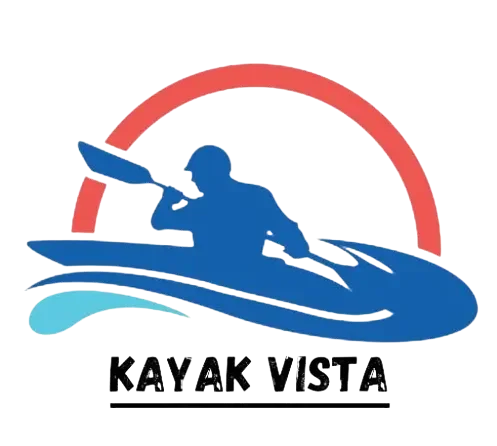
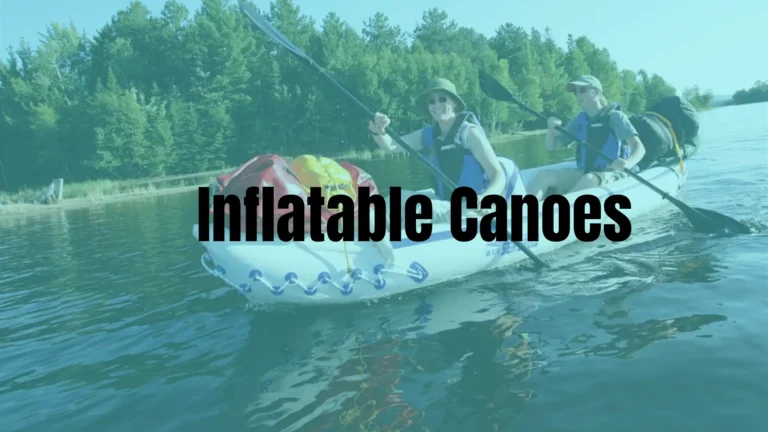
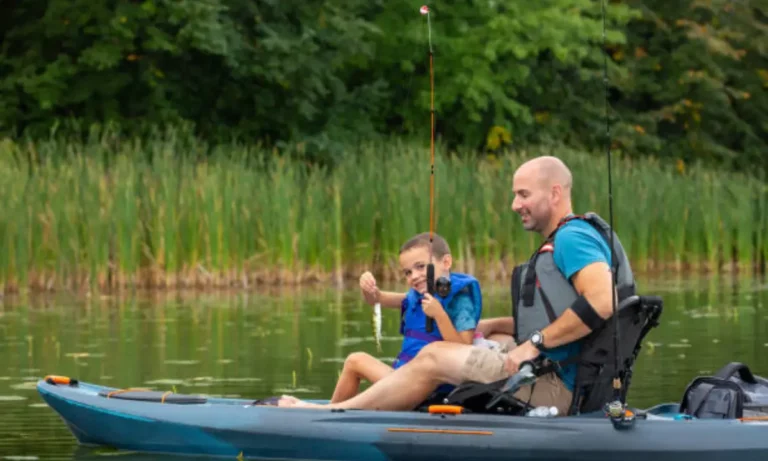

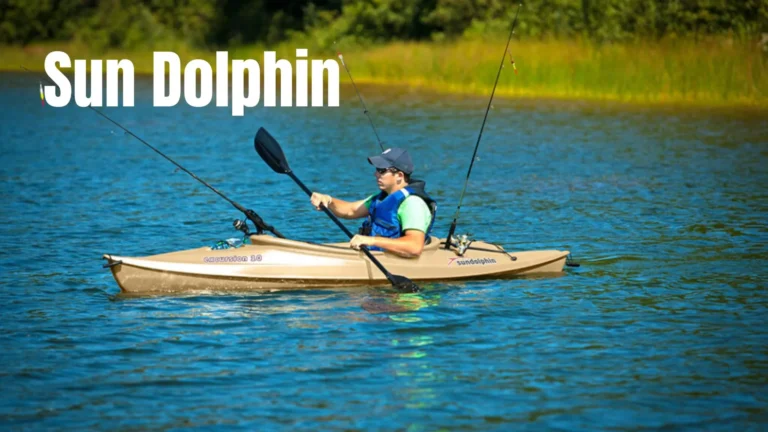
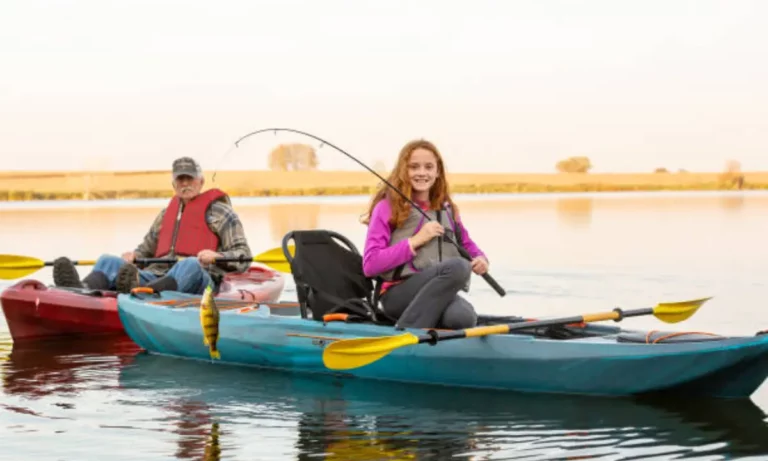
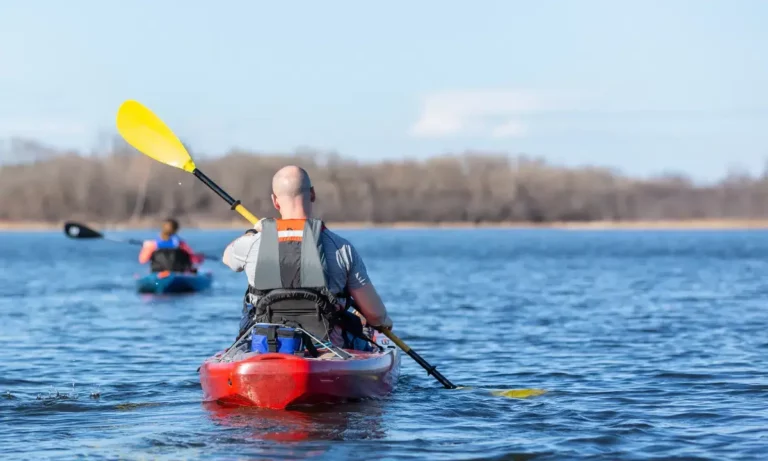
Thanks for sharing. I read many of your blog posts, cool, your blog is very good.